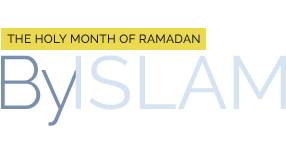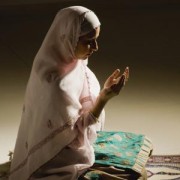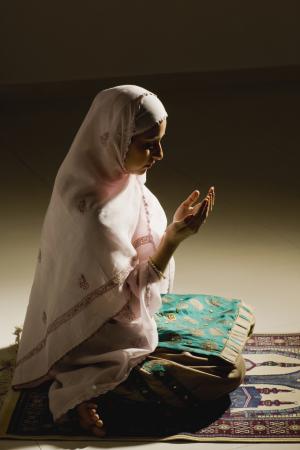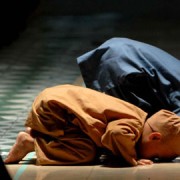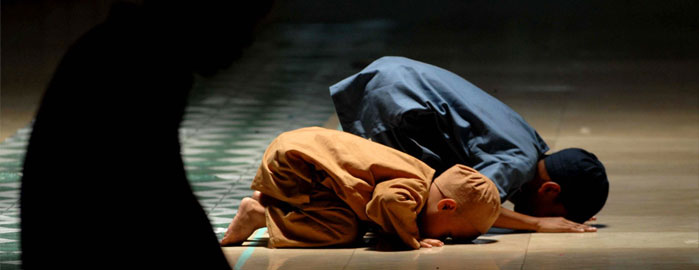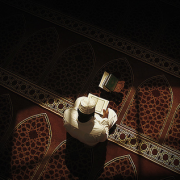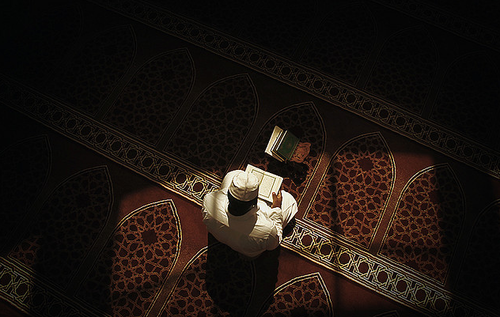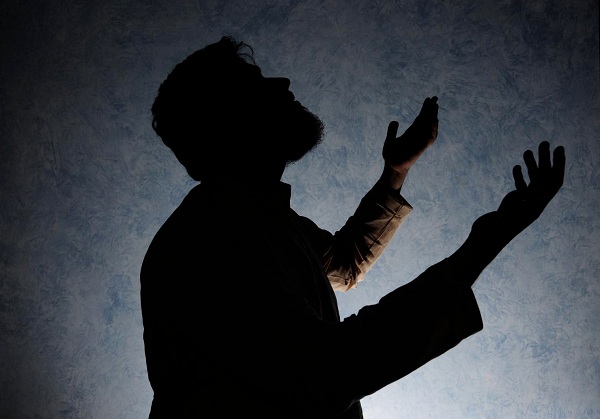 We are the creatures of Allah, and He is our Master. There are some responsibilities that we have toward Him i.e. the obligations and the prohibitions. When the Satan was stoned and taken away from the Paradise, he made an oath and said: I will deviate all mankind except the sincere servants. In chapter Saad from verse 71, Allah described this story. So the Satan and his army want to deceive us and make us away from the straight path. Sometimes we get deceived by them. In this time another trick of the devils is that they make us hopeless and say that you are a wretched and miserable person and you cannot be a real believer anymore, but we must repent to Allah and must know that the greatest sin or one of the greatest sins is getting hopeless from the ocean of Allah’s mercy and forgiveness. So we must turn to Allah and have Istighfar which literally means to ask for forgiveness. Here is a discussion, is there any difference between Tahbah(returning to Allah) and Istighfar? Now we do not enter in this discussion.
We are the creatures of Allah, and He is our Master. There are some responsibilities that we have toward Him i.e. the obligations and the prohibitions. When the Satan was stoned and taken away from the Paradise, he made an oath and said: I will deviate all mankind except the sincere servants. In chapter Saad from verse 71, Allah described this story. So the Satan and his army want to deceive us and make us away from the straight path. Sometimes we get deceived by them. In this time another trick of the devils is that they make us hopeless and say that you are a wretched and miserable person and you cannot be a real believer anymore, but we must repent to Allah and must know that the greatest sin or one of the greatest sins is getting hopeless from the ocean of Allah’s mercy and forgiveness. So we must turn to Allah and have Istighfar which literally means to ask for forgiveness. Here is a discussion, is there any difference between Tahbah(returning to Allah) and Istighfar? Now we do not enter in this discussion.
The concept of Istighfar is mentioned in the holy Quran many times.
Among the features of the pious people, this great deed has been mentioned. There are different levels for Istighfar, for example some people ask Allah for their sins, but there is mentioned that even the infallibles and sinless people were doing that and that has a different meaning from the Istighfar of the ordinary people.
There are many benefits for having Istighfar, some effects appear in this world and some after death. We mention some of them:
-Being away from the punishment of Allah in this world.
Allah said in chapter Anfal verse 33:
وَمَا كَانَ اللّهُ لِيُعَذِّبَهُمْ وَأَنتَ فِيهِمْ وَمَا كَانَ اللّهُ مُعَذِّبَهُمْ وَهُمْ يَسْتَغْفِرُونَ
“But Allah was not to punish them whilst you were living in their midst, nor would Allah punish them if they repeatedly ask forgiveness of him.”
Imam Ali peace be upon him said:
There were two things that were keeping safe from the punishment of Allah, the one was the existence of the Prophet of Islam that was taken by his departure, but there is the second thing that is Istighfar that always is available for the people, so grasp it.
-Forgiveness of the sins.
Allah said in chapter Noah verse 10 quoting fromt Prophet Noah:
فَقُلْتُ اسْتَغْفِرُوا رَبَّكُمْ إِنَّهُ كَانَ غَفَّارًا
“Ask for forgiveness of your lord,” I said. “Surely, he is the forgiver”.
Another benefit of Istighfar is that it increases the sustenance.
In chapter Noah verse we read:
يُرْسِلِ السَّمَاء عَلَيْكُم مِّدْرَارًا
“(If you do Istighfar) He will let loose the sky upon you in abundance”
Another effect of Istighfar is that it increases the children.
When some people that they cannot have any child, come to the great scholars in the field of morality, they prescribe them to have many Istighfar, and that is because of the verse 12 in chapter Noah which we read:
وَيُمْدِدْكُمْ بِأَمْوَالٍ وَبَنِينَ
“(if you do Istighfar…) and (Allah) gives to you wealth and sons”
Another effect of Istighfar is that it causes the welfare and good life. Allah said in chapter Hud verse 3:
وَأَنِ اسْتَغْفِرُواْ رَبَّكُمْ ثُمَّ تُوبُواْ إِلَيْهِ يُمَتِّعْكُم مَّتَاعًا حَسَنًا إِلَى أَجَلٍ مُّسَمًّى
“And ask forgiveness of your lord and then repent to him. He will give you enjoyment till a stated term.”
We can have Istighfar in anytime but there are some times in which is recommended to have this great deed, like in the time of Sahar(meaning after midnight till the time of morning Azan(call to prayer).
Allah explicitly mentioned the name of Sahar in the holy Quran like chapter Ale Imaran verse 17 when He said:
الصَّابِرِينَ وَالصَّادِقِينَ وَالْقَانِتِينَ وَالْمُنفِقِينَ وَالْمُسْتَغْفِرِينَ بِالأَسْحَارِ
“Who are patient, truthful, obedient, and charitable, and who ask forgiveness at Sahar.”
When the brothers of Prophet Josef came to their father and asked him to ask forgiveness for them from Allah, Prophet Jacob (the father of Prophet Josef) said: I will do Istighfar for you.
According to a lot of the exegesis books of the holy Quran, he delayed Istighfar until the time of Sahar.
Imam Ali peace be upon him said:
“I advise you in the month of Ramadan to do Istighfar and Doa so much, the benefit of Doa is that is keeps you safe from the problems and difficulties, and Istighfar wipes out your sins.”
The month of Ramadan is a good opportunity to do Istighfar especially in the time of Sahar, because in both cases i.e. this holy month and the time of Sahar, Istighfar is prescribed and this is a month in which Muslim get up before morning Azan to eat the meal, so they can plan and adjust their time to be awake a little bit sooner in order to remember Allah especially by Istighfar.
